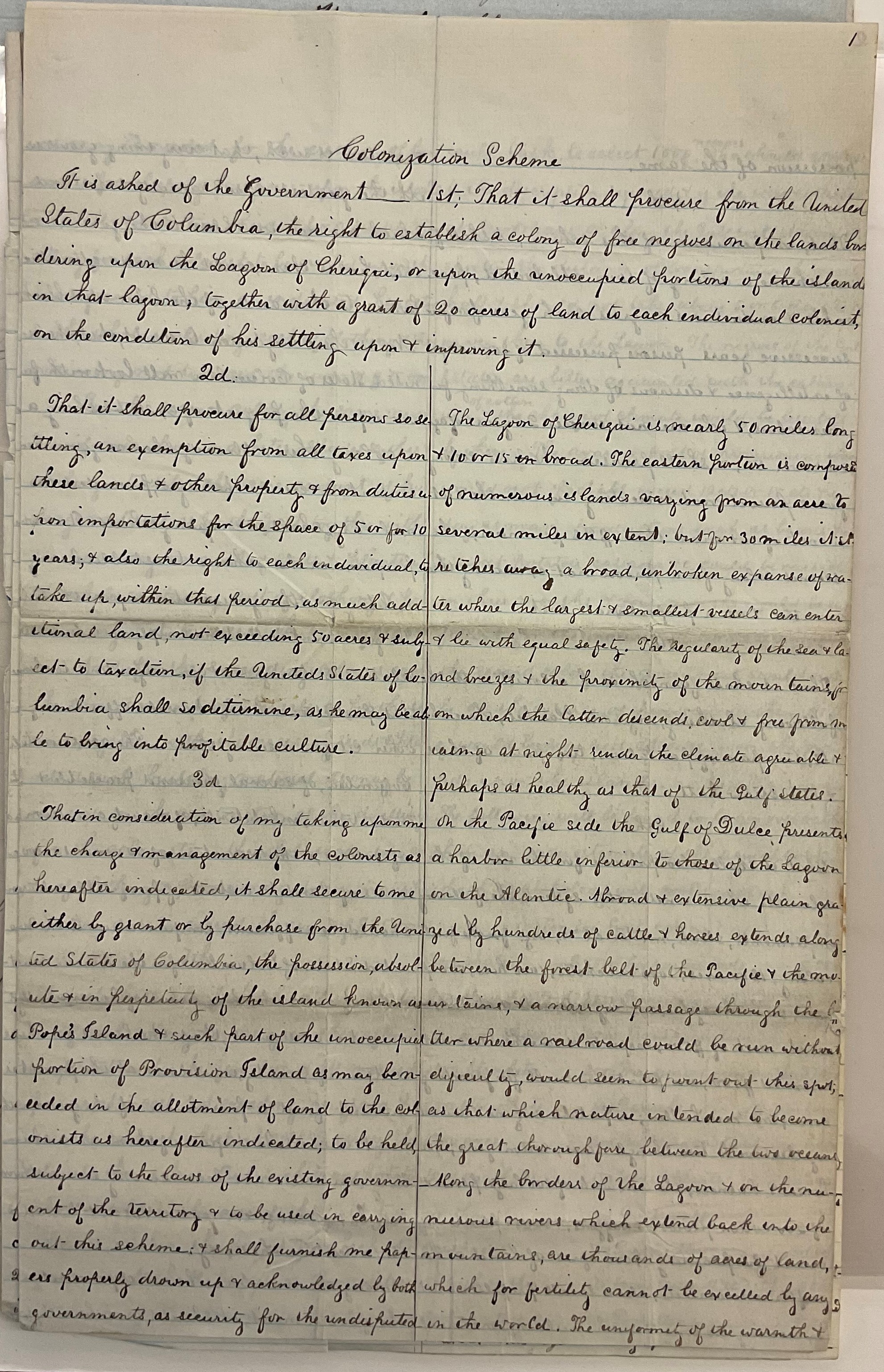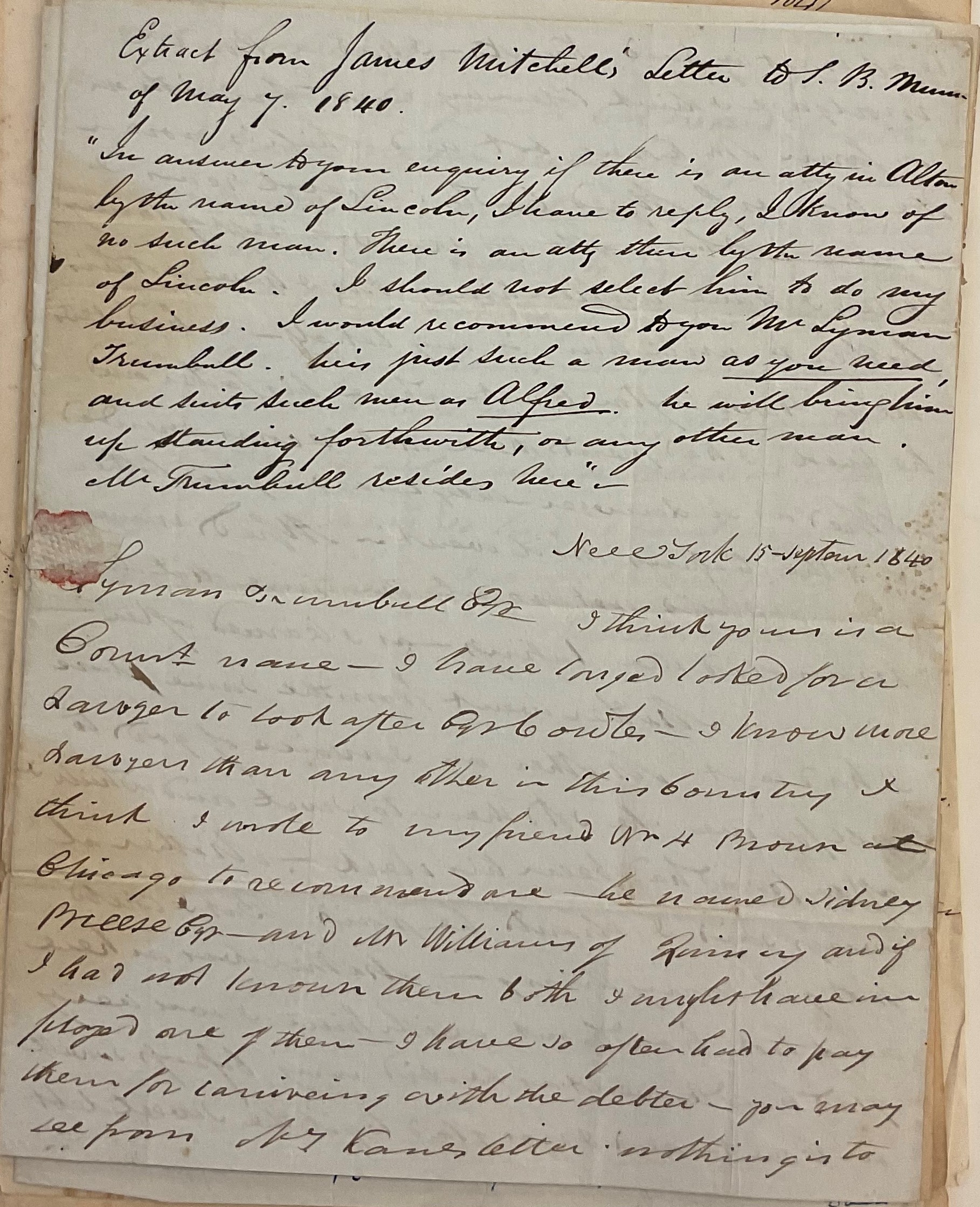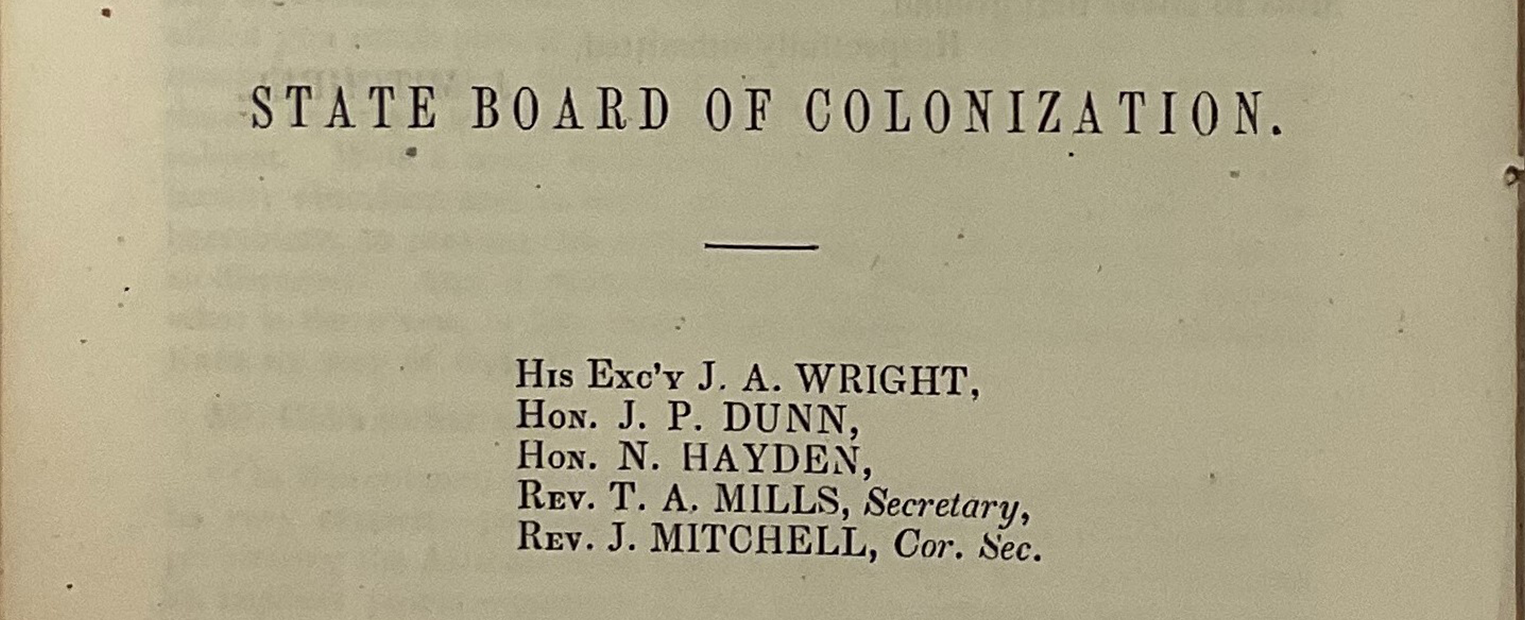Samuel Davis, Ph.D. on How Settlers Expelled Native Americans and Attempted to Colonize Liberia With Enslaved People and Free Black Americans in the Name of Westward Expansion

Samuel Davis, Ph.D., was always interested in the intersection between politics and law. The assistant professor of history, currently writing a book, spent much of his time recently trying to decipher handwriting that is approaching 200 years old.
The task, while difficult, is one he does gladly. Davis hopes his research, and the book coming from it, will shine a light on an under-covered subject in American history: the removal of Native Americans from the Midwest and the effort to colonize Africa with enslaved people and free Black Americans.
Free...and Yet Not
Davis specializes in studying issues of race in the former Northwest Territory, a vast swath of land encompassing modern-day Ohio, Indiana, Illinois, Michigan and Wisconsin.
Established in 1787, the Territory opened to white settlers from the American states. The document that established the territory, the Northwest Ordinance, outlined the path to statehood for the Territory. It outlawed slavery while also requiring that fugitive enslaved people be returned to their owners if found. Those with property in human beings who already lived in the Territory were allowed to keep them, or convert the enslaved people into indentured servants.
According to Davis, officials and elites in the Territory sought to create “anti-slavery free states, states where slavery is not legalized, for white settlers moving west.” The way to accomplish this goal was to remove the Native American population and encourage or coerce free Black Americans to settle in Liberia, in West Africa, through a process of colonization.

The idea of colonization was encouraged by the American Colonization Society (ACS). ACS members in the Northwest, a group of white social and political elites, supported colonization as a way to avoid civil war between southern slave states and northern free states.
“They (ACS members) are trying to find ways to avoid civil war, to maintain friendly relationships with slave states in the South,” according to Davis. The presence of free Black people in the Northwest Territory was a problem for local white citizens and southern slave owners, and ACS members touted colonization as a way to assuage southern discomfort.
For ACS members, “colonization and sacrificing Black freedom or any type of idea around racial political equality, was a compromise” worth making, he said.
In addition to encouraging colonization of Black Americans in far-flung Liberia, officials in the Northwest Territory pursued a policy of removing Native Americans from the Territory. Davis said Native Americans had reconciled with American settlers in the Northwest Territory on lands already ceded to the U.S. government but resisted continued dispossession and insisted on retaining their sovereignty.
The demands for respect of Native American sovereignty in the Northwest Territory fell on deaf ears.
Occurring around the same time and comparable to the infamous Trail of Tears, “the same type of violence” was happening in the Northwest Territory to Potawatomi and other Native Americans, according to Davis.
“John Tipton, who’s a senator from Indiana, comes back from Washington to personally round up Indigenous people to make sure they’re leaving,” Davis said.
The removal of Native Americans was not supported universally by those opposed to slavery, Davis noted. “Even abolitionists in the Northwest are against Native removal for moral and political reasons,” he said.
The Importance of James Mitchell
When studying the colonization movement, Davis said the life and work of James Mitchell were important to an understanding mindset of supporters.
Mitchell was a Methodist minister and Irish immigrant who was active in church leadership in Indiana and a prominent agent of the ACS. Mitchell would later meet and befriend Abraham Lincoln. When Lincoln became president, he appointed Mitchell “Commissioner of Emigration,” to oversee repeated unsuccessful efforts to have Black Americans leave the U.S. to colonize Liberia, Haiti and Central America.
“He (Mitchell) is representative of not just anti-slavery politics, but how colonizationists, who are anti-slavery, also happened to be anti-Black. They’re against racial political equality,” Davis explained.
"He (Mitchell) is representative of not just anti-slavery politics, but how colonizationists, who are anti-slavery, also happened to be anti-Black. They’re against racial political equality." - Samuel Davis, Ph.D.
With the Civil War and Lincoln’s views on race arguably “the most written about subjects in American history,” said Davis, Mitchell and his views are useful for putting Lincoln and supporters of colonization in proper historical context.
“’Who is Lincoln? What are his principles?’ These are worthy of examination but as historians, we got bogged down in those arguments. We need to place Lincoln in the context of people like James Mitchell, who thought colonization was a compromise anti-slavery politicians and supporters believed were useful to avoid Civil War,” Davis said.
Understanding History

Davis argued that understanding the colonization movement and the forced removal of Native Americans from the Northwest Territory was important when discussing American history. The decision to use violent means against Indigenous and Black Americans that were lawful at the time and considered necessary to avoid civil war benefited anti-slavery white settlers.
“It's important to understand the violence that occurred and was necessary for the U.S. to expand west. Violence against Indigenous people and violence experienced by enslaved people in the South. But particularly in the Northwest, there’s a violence that is executed through law against people of African descent,” Davis explained.
“Part of what I argue in my book project is that, yes: We're accustomed to talking about removal in the South, and then the expansion of slavery. But removal also happens in the Northwest, except it's expansion for white settlers opposed to slavery,” Davis said.
